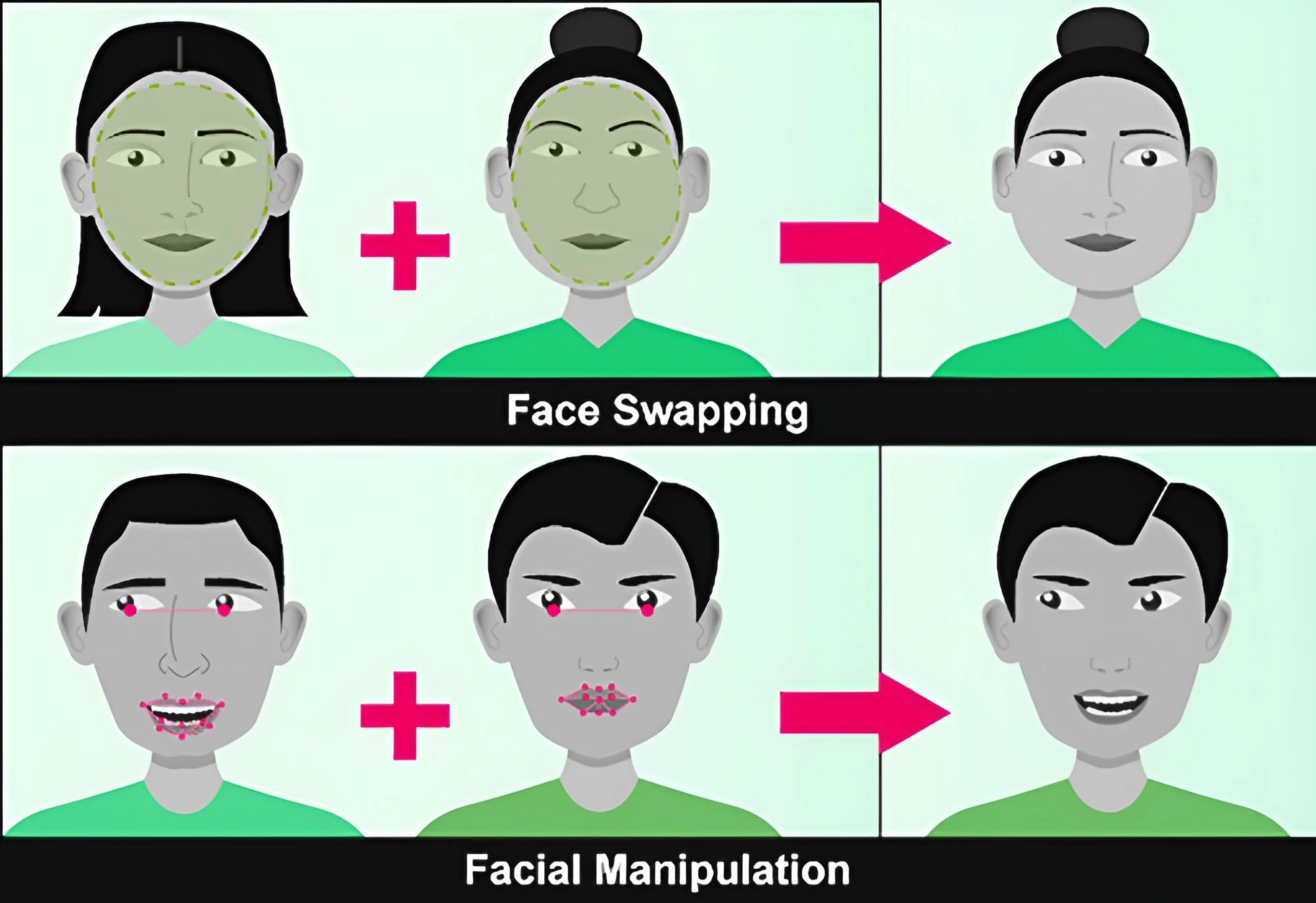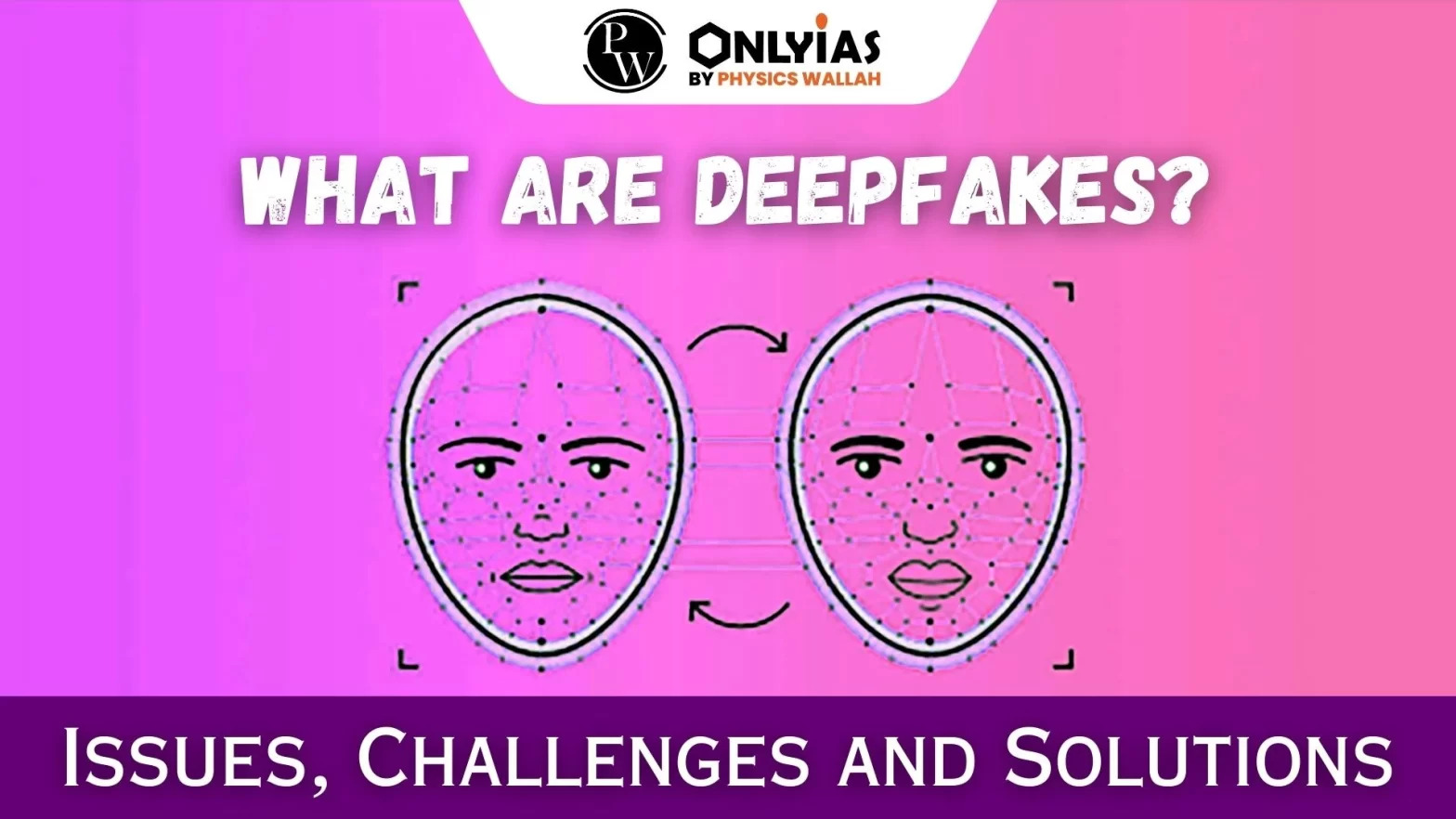Context:
| Relevancy for Prelims: Deepfakes.
Relevancy for Mains: Deepfake, arising challenges and steps that need to be taken to address the issue. |
What are the Deepfakes?
- Digital Manipulation: Deepfakes are synthetic media that have been digitally manipulated to replace one person’s likeness convincingly with that of another.
- These are the manipulation of facial appearance through deep generative methods.

What are the challenges associated with Deepfakes?
- Spread Misinformation: Deepfakes could be used to spread misinformation and disinformation during Indian elections.
- For example, a deepfake video of a political candidate making a controversial statement could be used to damage the candidate’s reputation and influence the outcome of the election.
- Blackmailing: Deepfakes could be used to blackmail or extort public figures and business leaders in India.
- For example, a deepfake video of a public figure or business leader engaging in illegal or immoral activity could be used to threaten to release the video if the person does not pay a ransom or comply with certain demands.
- Incite Violence: Deepfakes could be used to create fake news stories and propaganda that could incite violence or communal unrest in India.
- For example, a deepfake video of a religious leader making inflammatory statements could be used to provoke violence between different religious groups.
- Commit Fraud: Deepfakes could be used to commit fraud and identity theft in India.
- For example, a deepfake video could be used to impersonate someone in order to gain access to their bank account or credit card information.
- Lack of Protection: The repercussions of the menace of AI-generated fake content i.e., deepfakes, especially in a polarizing world and a divided online ecosystem can be far reaching, and is a new challenge to lawmakers around the world.
- Big tech companies including Meta and Google have announced measures to tackle it, but these are being easily exploited by people who want to disseminate such content.
The Path Ahead
- Strict Regulations: Deepfakes are a concerning challenge of polarizing modern age, and to tackle it adequate laws and regulations are a need of the hour.
- India needs to come up with strict regulations like modifying the Information Technology Act, 2000 (IT Act), 2000.
- China already introduces comprehensive regulation on deepfakes to curb disinformation and consent from individuals and adherence to laws and public morals are mandated.
- Make Aware: There is a need for public awareness and digital literacy.
- Review Mechanisms: Service providers must establish review mechanisms and cooperate with the government.
Also Read: IT Rules under scrutiny: Due to Deepfake Threats
Conclusion:
There is a need to address the ethical, legal, and technological aspects of deepfakes in a collaboration of citizens, service providers, governments and international organizations to provide a sense of digital security to the society.
| Prelims Question (2017)
In India, it is legally mandatory for which of the following to report on cyber security incidents?
1. Service providers
2. Data centres
3. Body corporate
Select the correct answer using the code given below:
(a) 1 only
(b) 1 and 2 only
(c) 3 only
(d) 1, 2 and 3
Ans: (d) |
![]() 7 Nov 2023
7 Nov 2023


